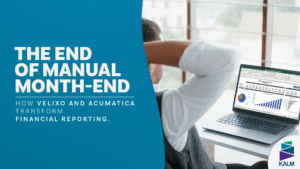This article is part of our ongoing series on ERP implementation failure, exploring “The Rigidity of ERP Systems” and how businesses can transform these challenges into strategic advantages.
ERP implementation failure often stems from choosing the wrong type of system for your organization’s needs. Choosing between a rigid ERP and a flexible ERP can determine whether your company thrives or struggles in today’s competitive market. Some businesses prioritize stability and absolute control over their processes, while others need adaptability and seamless integration with new technologies. So, which option is best for your business?
There is no one-size-fits-all ERP. Depending on your industry, business model, and growth objectives, your company may benefit more from a highly structured system or one that allows for customization and scalability. Making the wrong decision can lead to high maintenance costs, operational inefficiencies, and missed growth opportunities.
In this article, we will analyze the key differences between rigid and flexible ERP systems, their advantages and disadvantages, and how to choose the best system for your business needs.
🧱 What Is a Rigid ERP vs. a Flexible ERP?
🔒 Rigid ERP
A rigid ERP follows a structured and standardized framework with minimal customization options. It is designed for businesses that require strict operational uniformity. Key characteristics include:
- High stability and reliability for standardized processes
- Limited customization and adaptability
- Restricted integration with external technologies
- High costs and extended timelines for system updates
- Strong control over business operations
🔄 Flexible ERP
A flexible ERP adapts to specific business needs, offering customization and scalability. Its main characteristics include:
- Greater integration with digital tools
- Configurations that adjust as the company grows
- Easy incorporation of new functionalities and automation
- Higher agility to respond to market changes
- Reduced dependency on software vendors for modifications
📊 Comparison: Rigid ERP vs. Flexible ERP
| Feature | Rigid ERP | Flexible ERP |
|---|---|---|
| Adaptability | Low | High |
| Integrations | Limited | Extensive |
| Customization Cost | High | Moderate |
| Implementation Time | Long | Short |
| Scalability | Limited | High |
As shown in the table, a rigid ERP is ideal for businesses with well-defined, regulated processes, while a flexible ERP fosters continuous innovation and growth.
🛠️ When to Choose a Rigid ERP
A rigid ERP is the best choice for businesses that:
- Operate in highly regulated industries such as healthcare or finance
- Require standardized processes to prevent operational errors
- Have minimal internal operational changes
- Value stability over customization
In these cases, the reliability and control of a rigid ERP outweigh the benefits of flexibility.
🚀 When to Opt for a Flexible ERP
A flexible ERP is recommended for businesses that:
- Require constant innovation and frequent process adjustments
- Need seamless integration with various digital platforms and automation tools
- Have expansion plans and require scalable operations
- Prefer autonomy in modifying their systems without external vendors
If a company operates in a dynamic market where agility is key to competitiveness, a flexible ERP may be the best solution.
🔧 Strategies for Transitioning from a Rigid to a Flexible ERP
For businesses currently using a rigid ERP but seeking more flexibility, several strategies can facilitate a smooth transition without requiring a complete system overhaul:
- Add-on Modules: Some rigid ERPs allow extensions to enhance customization options.
- API Integrations: Connecting the ERP with other tools via APIs can expand its capabilities without altering its core.
- Cloud Migration: Shifting part of the system to the cloud enables scalability while maintaining ERP stability.
- Process Automation: Implementing RPA and advanced analytics can mitigate rigid ERP limitations.
These strategies help businesses gain the benefits of both ERP types without the complexities of a full migration.
🧩 Choosing the Right ERP: Flexibility or Stability?
The choice between a rigid ERP and a flexible ERP depends on the company’s industry and strategic goals. If stability and regulatory compliance are priorities, a rigid ERP is the best option. However, if a company needs agility, innovation, and scalability, a flexible ERP is the most effective alternative.
There is no universal answer, but evaluating business needs and long-term vision is crucial to making the best decision.
Need help assessing your ERP options? Contact us today for expert guidance on selecting the best ERP for your business growth.








